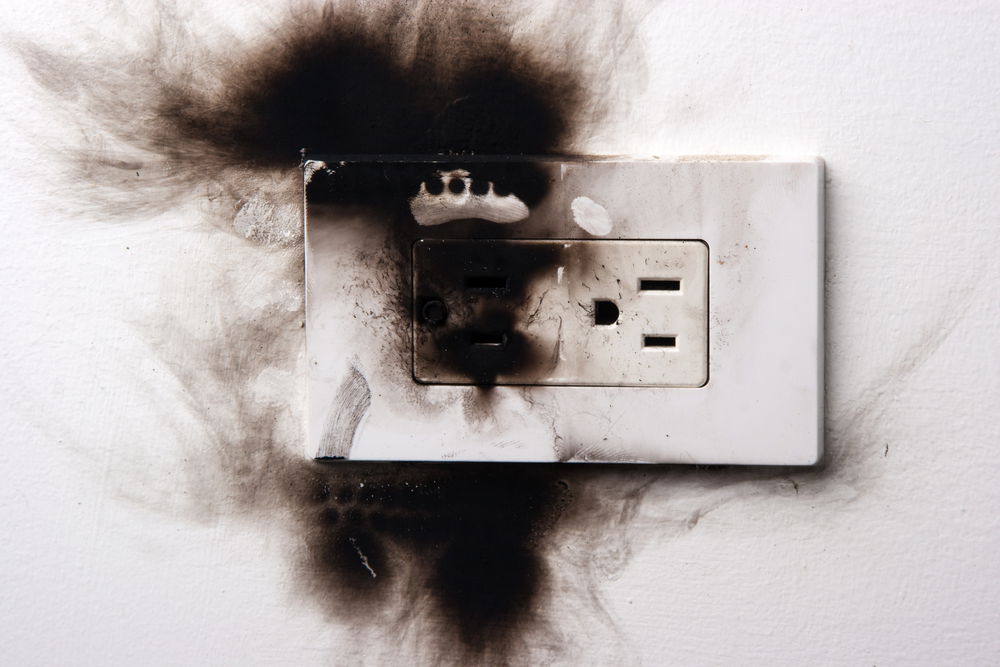10 Tips For Maintaining Electrical Safety At Your Rental Homes

10 Tips For Maintaining Electrical Safety At Your Rental Homes & further Information for landlords and tenants.
Review your home and rental properties electrical safety practices
The start of the new year is a good time to review home and workplace electrical safety practices. Here are some tips to help protect your employees and residents from an electrical fire:
- Check electrical cords to make sure they’re not running across doorways or under carpets. Also, check them for damage before using. Replace damaged cords immediately.
- Extension cords are intended for temporary use- have a qualified electrician add more receptacle outlets so you don’t have to use extension cords.
- Use light bulbs that match the recommended wattage on the lamp or fixture. There should be a sticker that indicates the maximum wattage light bulb to use.
- If outlets or switches feel warm, frequent problems with blowing fuses or tripping circuits, or flickering or dimming lights, call a qualified electrician.
- Only plug one heat-producing appliance (such as a coffee maker, toaster, space heater, etc.) into a receptacle outlet at a time. Also, keep electrical appliances away from water sources such as sinks, pools and bathtubs.
- Arc fault circuit interrupters (AFCIs) are a kind of circuit breaker that shuts off electricity when a dangerous condition occurs. Consider having them installed in your home.
- Use ground fault circuit interrupters (GFCIs) to reduce the risk of shock. GFCIs shut off an electrical circuit when it becomes a shock hazard. They should be installed inside the home in bathrooms, laundry rooms, kitchens, garages and basements. All outdoor receptacles should be GFCI-protected.
- Test AFCIs and GFCIs once a month to make sure they’re working properly.
- Keep the area around your electric meter and other electrical equipment clear.
- Have all electrical work done by a qualified electrician.
Also, periodically inspect inside and outside of the home or office to identify any electrical issues that need to be addressed. Skellec Electrical also recommends hiring a professional tree cutting service to trim branches that might fall on home electric wiring.
Further Information...
Landlords’ responsibilities
- Ensure only licensed electrical professionals perform all electrical work
- Before re-letting, ensure all appliances are safe and any unsafe appliance is repaired or disposed of
- Ensure electrical appliances are cleaned regularly in accordance with manufacturers’ instructions – particular attention should be paid to dust build-up on cooling fan inlets and all parts of heaters
- Check electrical appliances for damage to plugs, leads and casings that may expose live parts or cause a fire
- Ensure electrical wiring, socket outlets and switches are maintained in a safe condition,
- Ensure all ventilation openings are clear and unobstructed
- Record all safety checks and details of work carried out on a licensed electrical installation.
Tenants’ responsibilities
Tenants also have responsibilities, including reporting appliance faults to the landlord or the landlord’s agent.
- Use appliances appropriately and as intended by the manufacturer
- Allow reasonable access for the landlord’s contractor to carry out electricity safety checks
- Report any fault or malfunction to the landlord or agent
- Immediately stop using any appliance that is clearly faulty
- Do not illegally install, remove or tamper with any electrical appliance
- Do not use damaged appliances – they can cause fires and serious injury or death
- Do not use multiple or cascaded power boards as a substitute for permanently installed socket outlets
- Ensure that portable heaters are kept away from combustible materials including paper, bedding and curtains.
When replacing electrical fuses or fuse wire, only use the specified rating – oversized fuses may cause the fixed wiring to fail resulting in electric shock or fire.
Performing electrical work
A registered electrical contractor must be engaged to perform all electrical work on a property. It is illegal and dangerous for unqualified people to perform electricity or gas work.



